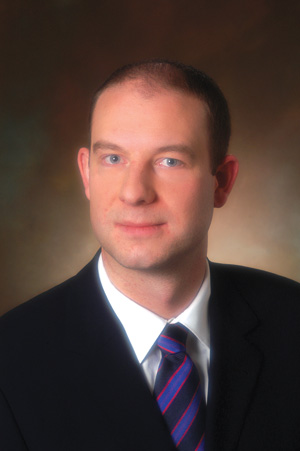Delivering exceptional client service is theend goal for any law firm regardless of size, but the increased competitionamong law firms is having a profound impact on the profession.
 A paper just released by Robert Half Legal as
part of its Future Law Office project, entitled "Client Service: Strategies and
Challenges," emphasizes the impact of service levels on a firm's profitability
and illustrates how law offices are developing strategies for better
supervision of client relationships. The report also highlights new management
trends like formal marketing and sales departments and professional development
departments.
A paper just released by Robert Half Legal as
part of its Future Law Office project, entitled "Client Service: Strategies and
Challenges," emphasizes the impact of service levels on a firm's profitability
and illustrates how law offices are developing strategies for better
supervision of client relationships. The report also highlights new management
trends like formal marketing and sales departments and professional development
departments.
"Research conducted for the Future Law Office
project shows many law firms are re-evaluating their business strategies in
order to become customer centric and generate additional revenue," says Charles
Volkert, executive director of Robert Half Legal.
He says firms are sharing more information
across practice groups and conducting research to improve service offerings. As
well, he notes that lawyers are familiarizing themselves with their clients'
current business challenges, and in some cases are pursuing MBAs to help
fulfill their roles as legal counsel and business advisors.
"The key areas that it talks about is service
issues and solutions," says Rob Hosking, vice-president of Robert Half Legal.
"The satisfaction gap between the client and the law firm is something that
firms have really tried to close over the last while. The service level that's
delivered, the expectations that the client has are being met and exceeded
because the market continues to be much more competitive with boutique firms,
your mid-size firms, your large firms, in many instances, competing for the
same business but appealing to a different client so to speak."
The report asked 100 lawyers which techniques
are being implemented in their firms to enhance client service, and found the
following: mentoring and coaching, 90 per cent; technical tools and training,
88 per cent; professional development programs, 86 per cent; leadership
training, 55 per cent.
Hosking says the market is such that if clients
are unhappy with a particular firm there are other choices for them.
"There's a real competitive nature, which has
always existed, but what we're really seeing and what the firms are starting to
see is that it's becoming more and more competitive," he says.
Many large firms have reacted by having a dedicated
marketing staff and a formal strategy for promoting the firm to its target
clients. The position of chief marketing officer is also gaining ground in
large and mid-sized firms, says the report, and while some of these CMOs may be
lawyers, the majority have marketing backgrounds in banking, consulting, or
financial services.
Competitiveness is also increasing between
firms for maintaining and retaining internal legal talent, says Hosking.
"There are a lot of other choices out there for
people if they want to make a move or they are unhappy with their current firm.
If they don't feel that compensation is in line, they don't feel the work-life
balance is in line, they don't feel that they're being respected or treated as
well as they could somewhere else there are other options out there for them,"
he says.
"The market is tightening in such a way that
there's less and less availability of good talent so the firms are really
starting to grab these people up and try to hold on to them as much as they
can."
He says there is also a shift with large firms
hiring people to deal specifically with internal relationships and professional
development.
"Someone to rally with these people, whether
they're the articling students and really bringing them through or whether
they're the associate lawyers or the support teams in the firm. Just touching
in with these people a little more frequently . . . and chatting with them
about their overall level of satisfaction and using their input to improve the
firm and what they do on a daily basis."
He says this person can act as a front line for
new employees, but it's key that they aren't a partner with the firm or the
manager or supervisor of the lawyer.
"In the last few years there's been a real
shift in what people are looking for in a work environment so that person
internally can really act as a development person, a person that can help the
lawyer in their career."
Hosking says although historically lawyers have
been a bit slower to the technology pinch than people in other professions,
lawyers are catching up and seeking the benefit of using technology to increase
client service and manage client relationships.
"What we're seeing in the firms is that lawyers
are becoming much more technologically savvy to the extent that they can reduce
the number of support people that they have in the office because they're doing
a lot of that work themselves now as opposed to the past," he says.
For more information the report's findings,
visit: www.







